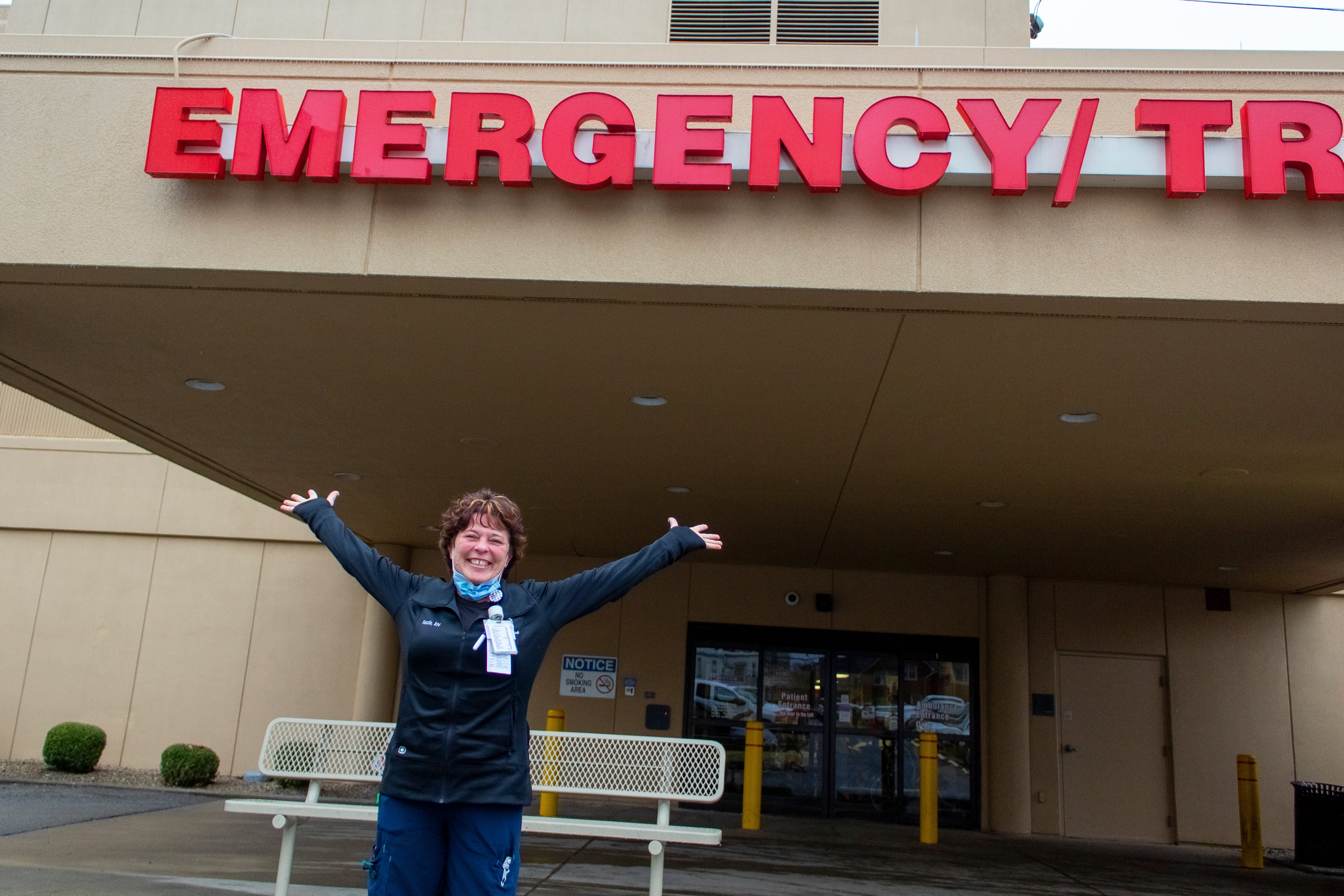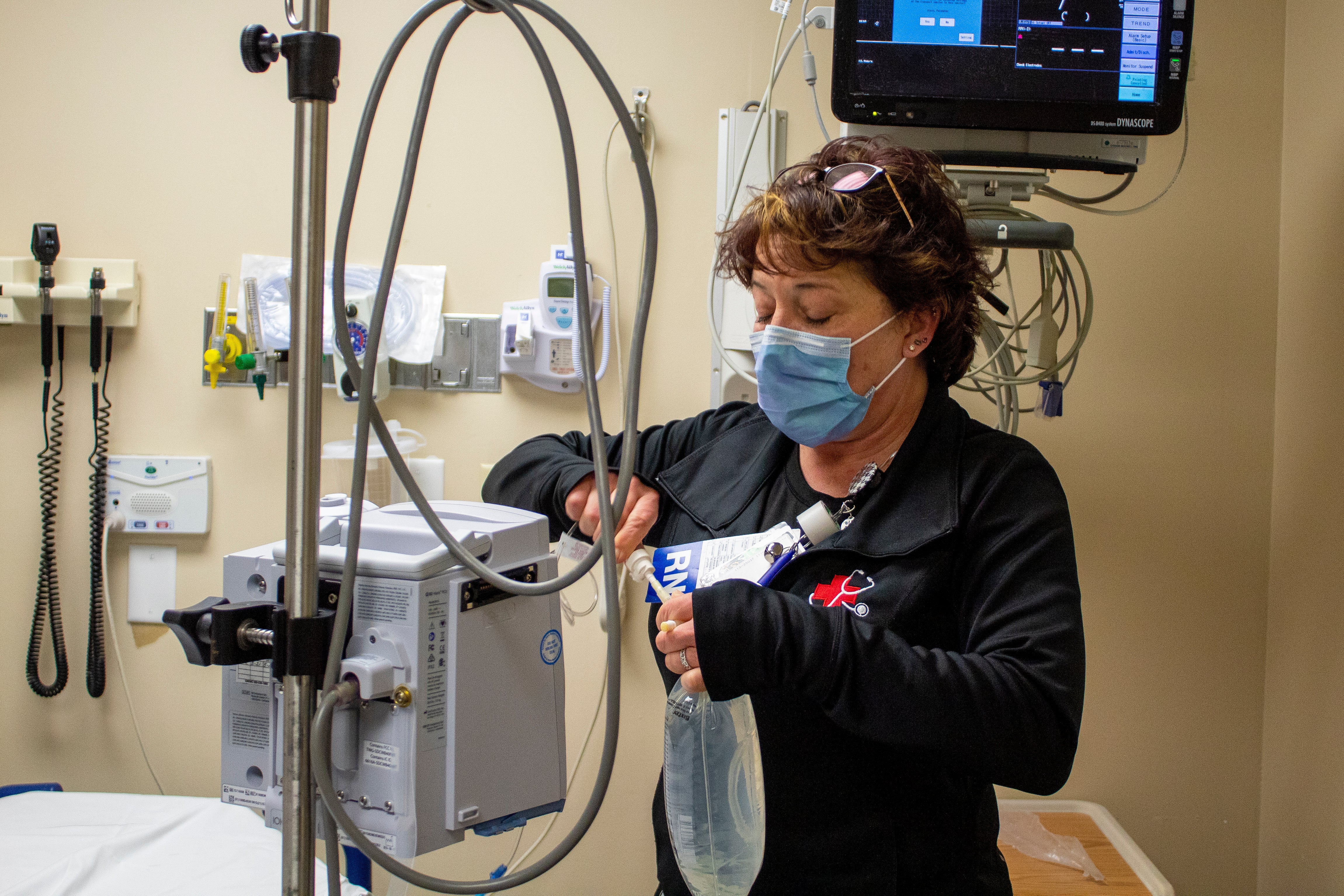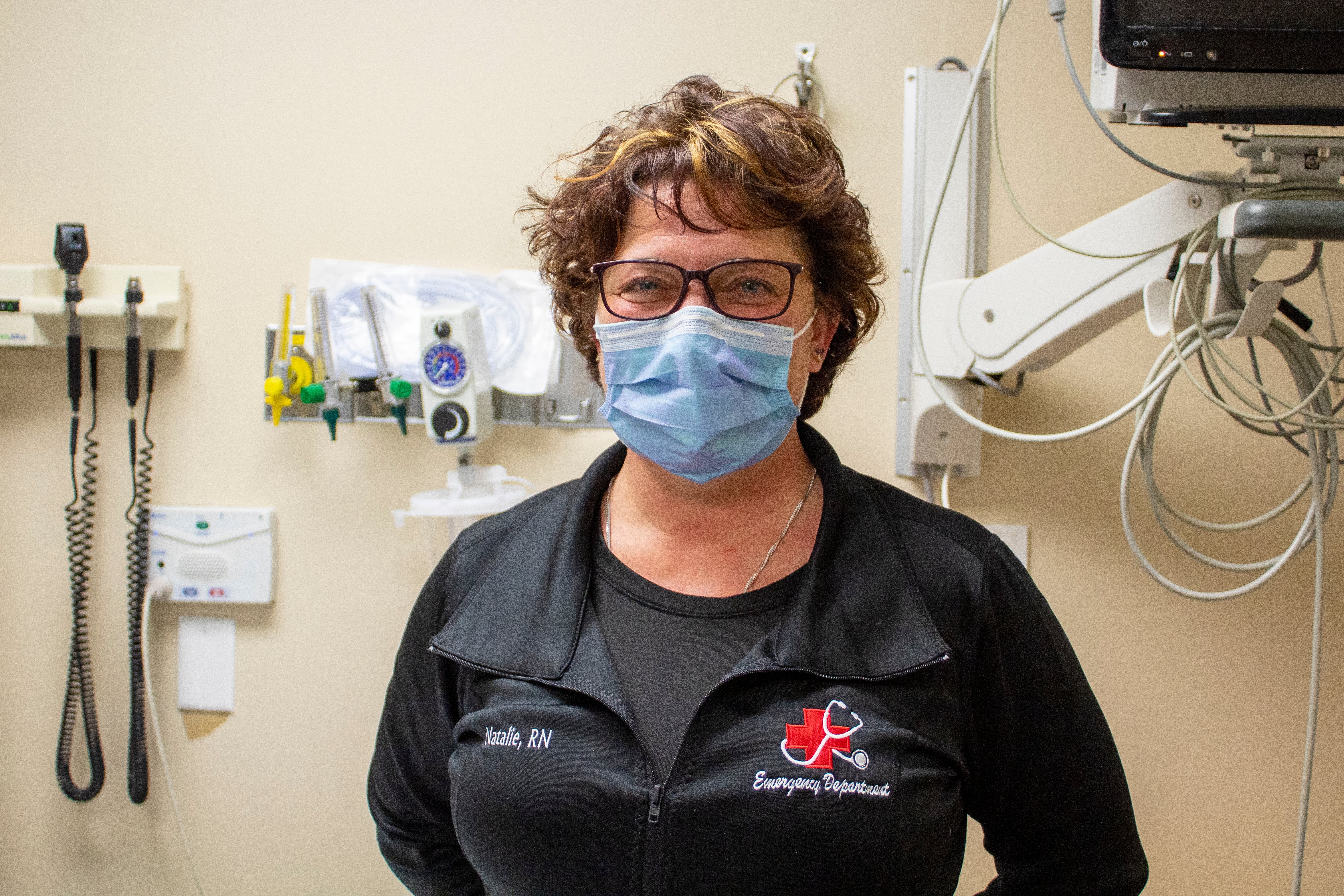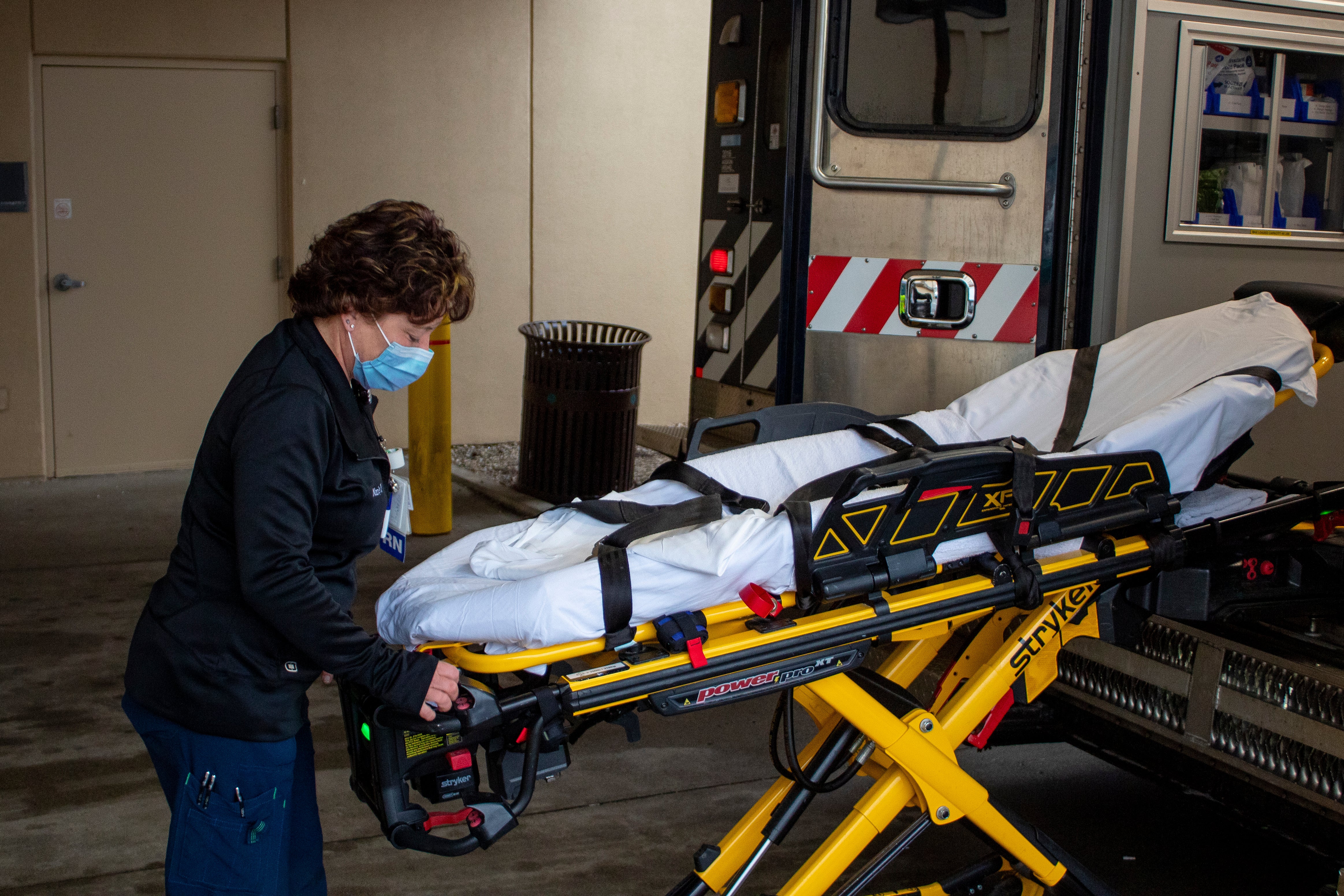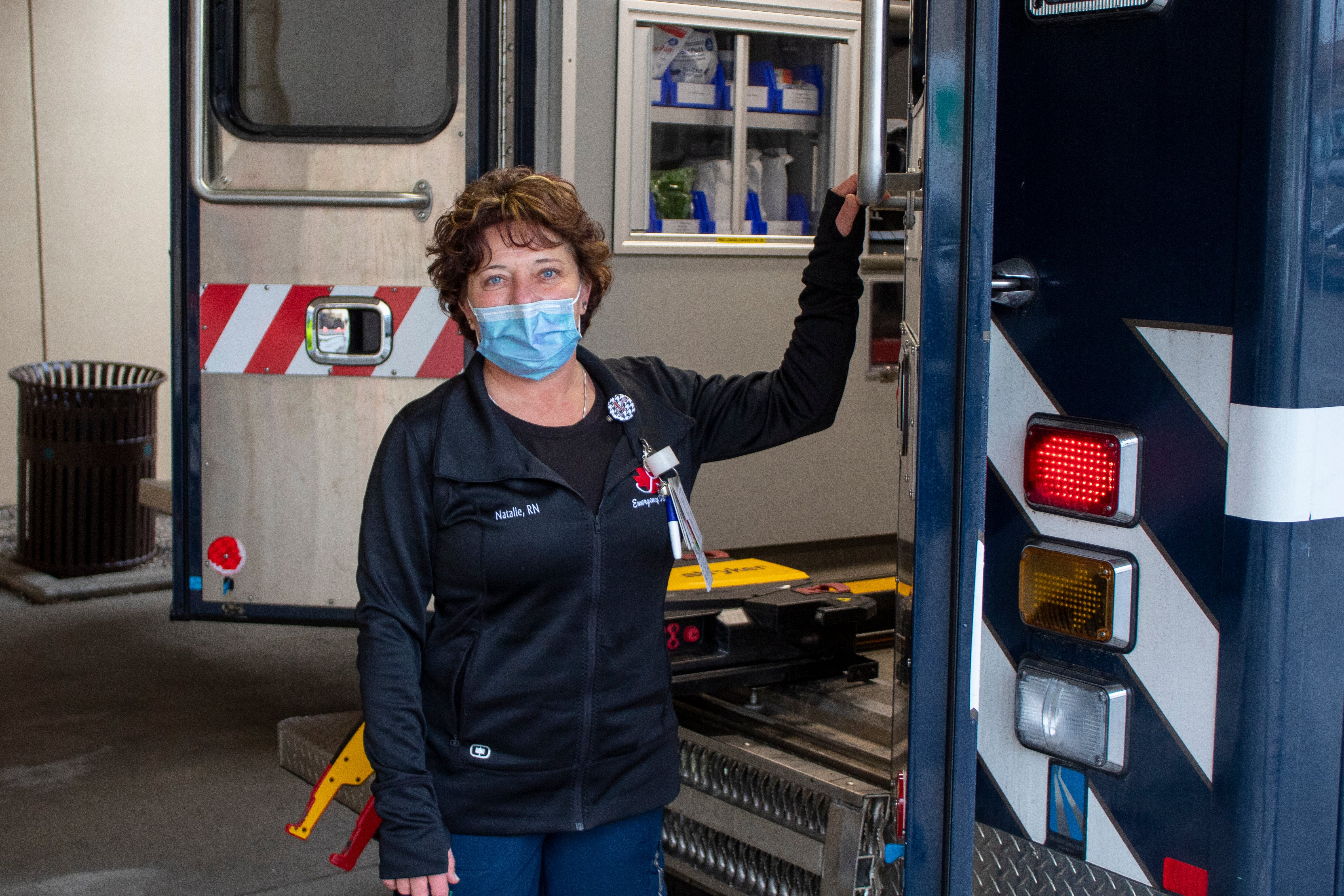Progress: Ephraim nurse loves the unknowns of working all hours
Published 4:49 pm Thursday, April 7, 2022
Progress 2022: This is the second in a series of stories that focus on people, many of whom work around the clock to make our community a better place to live. A new story will be published in the Friday edition of The Advocate-Messenger throughout the series.
Ephraim McDowell Nurse Natalie Graves walks into work every day not knowing what to expect. It could be a quiet night shift where she can get some down time, or a busy daytime overwhelmed with patients.
Every week is a different schedule for her, alternating between overnights and day shifts. An Emergency Room (ER) nurse, Graves lives the line, “expect the unexpected.”
“Any shift, you have no idea what’s going to roll through the door,” Graves said. “That’s one of the things with the ER, is you always have to be ready for crazy things to roll through the door.”
Graves most often works from 7 a.m. to 7 p.m. But she also does shifts from 7 p.m. to 7 a.m., 1 p.m. to 1 a.m., and 11 a.m. to 11 p.m., which she says is probably the busiest shift.
“That’s one of my favorites because I like to be busy,” Graves said. “Anywhere between 10:30 a.m. to midnight, you’re busy, you’re running constantly.”
She said the night shifts are usually slower. After moving patients from the ER and taking care of new patients from the day shift, she has time to stock rooms, making sure they’re ready for the next patient with all the necessary equipment. When there’s down time, she loves talking with other nurses.
“The comradery that you build when you work night shift and day shift when you get those little down times, you really get to know each other and become, as we all say, family, because that’s what we are; we consider ourselves family,” Graves said.
Graves has to adjust her entire schedule when she works a night shift after a day shift. After getting back exhausted from a day shift, she stays up during the night to be able to sleep before the next night’s shift. She said it’s important to be already rested before staying up all night at the hospital.
“It’s kind of juggling how much sleep I really have to have,” Graves said. “Anytime that you’re flipping shifts like that, it’s hard for your body to adjust.”
Working usually 40 to 48 hours three or four days a week, Graves has learned to get things done outside of work whenever she has time. Her children are grown up, but she has three dogs who love to vie for her attention.
A nurse since 2009, Graves previously worked in waitressing. She said waitressing and nursing have several similarities, like being busy, on your feet, and taking care of people’s needs.
After encouragement from her mother to go to nursing school, Graves did so, and got her nursing license three months after her mother passed away.
Graves loves what she does as an ER nurse. Besides sometimes not being able to go to the bathroom when she needs to, she loves the fast pace and unknowns that the ER has.
“I love my patients, I love my co-workers, I love the chaos, I love not knowing from one minute to the next what you’re going to get to do, the fast pace, the community I get to take care of,” Graves said. “I love helping people try to get better, even on their worst day. I want their worst day to be as good as I can get it.”
While being able to help people in many situations, Graves said it’s disheartening when the hospital can’t help a patient.
“I think that’s the thing that most frustrates me, is when you realize that there’s really not much more you can do for that patient; it’s frustrating as a nurse to realize that we can’t fix them all,” she said.
But when patients do come through and get better, she said it’s the most rewarding feeling.
“When you get to see someone, who you’re not 100% sure is going to survive, come back to see you and say thank you, it’s an awesome feeling,” she said.
While the job can make her overwhelmed and tired, Graves said she is always ready for the next day of helping people.


